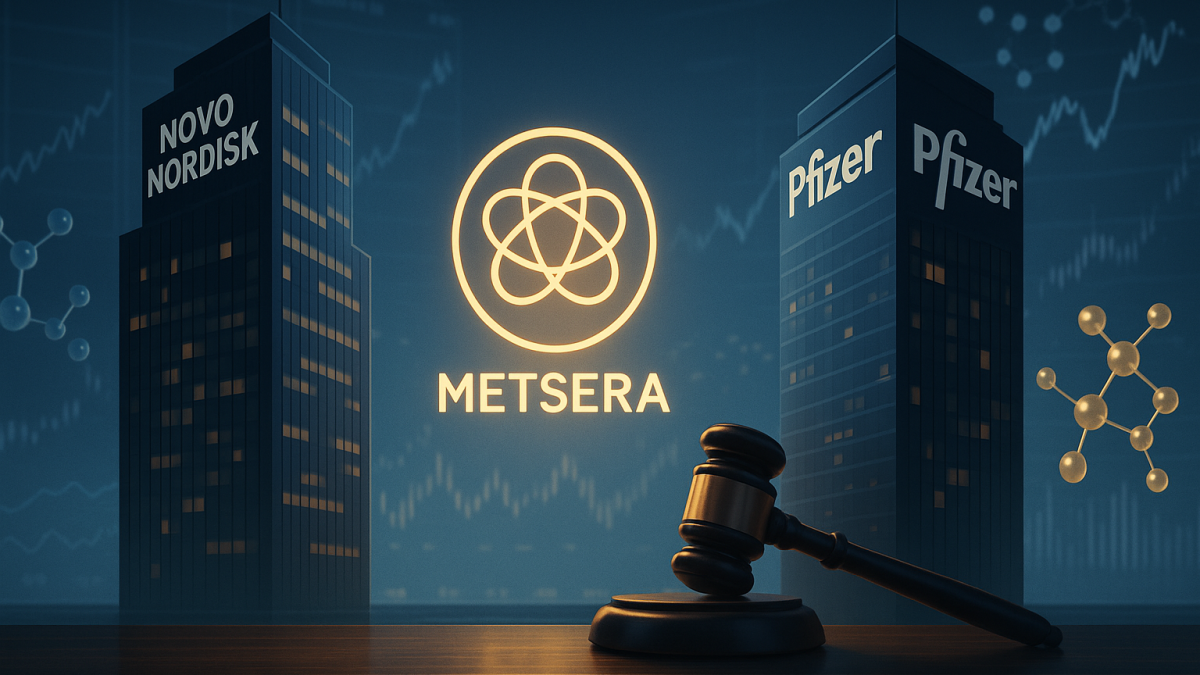Metsera stock (NASDAQ: MTSR) surged roughly 20% on Tuesday after the obesity-focused biotech announced that Novo Nordisk’s revised $10 billion acquisition proposal has been deemed “superior” to Pfizer’s competing bid.
The escalating bidding war underscores the pharmaceutical industry’s unprecedented scramble to control innovative obesity treatments.
The bidding war indicates that both giants recognize that securing Metsera’s next-generation pipeline represents a critical strategic advantage in a market set to exceed $150 billion by the early 2030s.
Investors have seized on the announcement as validation of Metsera’s proprietary platform and robust drug candidates, with the company’s valuation now reflecting a 159% premium to its pre-announcement price on September 19.
Why Pfizer and Novo Nordisk are locked in a high-stakes race
Metsera brings to the table a portfolio of differentiated obesity and metabolic disease therapeutics that directly address competitive vulnerabilities for both acquirers.
The company’s lead candidate, MET-097i, is a first-in-class, ultra-long-acting GLP-1 receptor agonist designed for potentially monthly dosing, a significant advancement over current market leaders Novo Nordisk’s Wegovy and Eli Lilly’s Zepbound, which both require weekly injections.
Metsera’s second critical asset, MET-233i, is an amylin analog that demonstrated compelling Phase 1 data with up to 8.4% placebo-subtracted weight loss and a 19-day half-life, supporting once-monthly administration with favorable tolerability.
Analysts have forecasted that Metsera’s combined pipeline could generate over $5 billion in peak sales, positioning either acquirer with a transformational asset.
For Pfizer, the strategic imperative is acute. The company has faced consecutive failures in its own oral obesity drug trials, leaving it disadvantaged as the obesity market accelerates.
By acquiring Metsera, Pfizer gains immediate access to clinical-stage incretin and amylin programs that sidestep its development setbacks and position the firm to compete against Novo and Lilly’s established market dominance.
Novo Nordisk, meanwhile, faces mounting pressure from Eli Lilly’s momentum and the imminent patent expiration of semaglutide, the active ingredient in both Wegovy and Ozempic.
Market reaction and the path forward
Metsera’s stock has nearly doubled since the start of 2025, and a lot of that momentum came even before this bidding war kicked off. Investors clearly see something promising in the company’s obesity drug pipeline.
Right now, Novo Nordisk has the higher bid on the table, about $86.20 per share, while Pfizer has countered with a revised offer of $70 per share.
Pfizer didn’t just stop there, though. The company has taken Novo to Delaware’s Court of Chancery, claiming Novo has violated the original merger agreement.
Pfizer is now pushing for a temporary restraining order to block Novo’s move.
Pfizer is also warning that Novo’s proposal could run into serious regulatory trouble.
They argue that combining Novo’s existing obesity drug dominance with Metsera’s assets could raise antitrust concerns and potentially derail the deal.
Everything is building toward Metsera’s shareholder vote on November 13, 2025. That’s when investors will have to choose which offer and which future they believe in.
Most analysts think we’re not done yet. More counterbids, concessions, or deal sweeteners could be coming as both companies try to navigate regulatory risks while securing a competitive edge.
Big picture? This fight shows just how high the stakes have gotten in the obesity drug market. Owning the next wave of treatment platforms is now just as strategic, maybe even more so than scoring the next blockbuster drug.
The post Why Metsera stock’s 20% surge signals a fierce Pfizer-Novo Nordisk bidding war appeared first on Invezz

